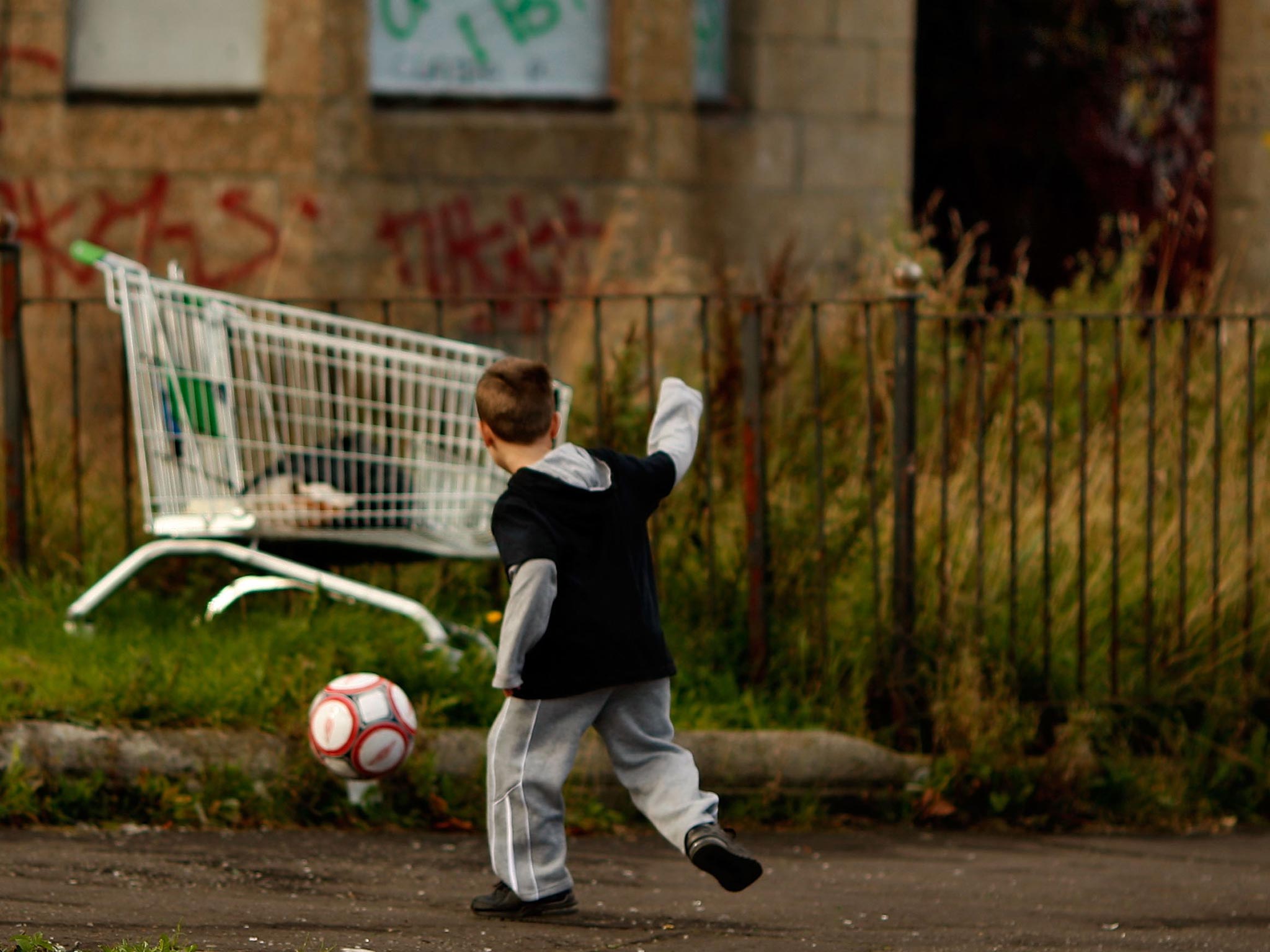If you think jobs provide a route out of poverty, then you should talk to the working mother who can't afford a bath for her family
Despite what the Government says, a new report has proven that a job does not always provide a reprieve from life on the breadline


Your support helps us to tell the story
From reproductive rights to climate change to Big Tech, The Independent is on the ground when the story is developing. Whether it's investigating the financials of Elon Musk's pro-Trump PAC or producing our latest documentary, 'The A Word', which shines a light on the American women fighting for reproductive rights, we know how important it is to parse out the facts from the messaging.
At such a critical moment in US history, we need reporters on the ground. Your donation allows us to keep sending journalists to speak to both sides of the story.
The Independent is trusted by Americans across the entire political spectrum. And unlike many other quality news outlets, we choose not to lock Americans out of our reporting and analysis with paywalls. We believe quality journalism should be available to everyone, paid for by those who can afford it.
Your support makes all the difference.The annual report from the Social Mobility and Child Poverty Commission told us today that by 2020, absolute poverty will have risen for working and non-working families for the first time since records began.
The "state of the nation" report should make sobering reading for politicians. It predicts that in less than a decade one in five children will be living in poverty, putting the future Government wildly off course on its target to eradicate child poverty by 2020.
Crucially for the Government, which has overseen four consistent years of benefits cuts under the mantra of motivating people to "work their way out of poverty", the report finds that a job does not always provide a route off the breadline. In fact, even under the most optimistic forecasts for employment and earnings growth, the report projects that by 2020 21 per cent of children will still be in hardship.
For the poor working families who use our services, news that low wages won’t necessarily keep a household financially afloat will be tragically unsurprising.
A family on minimum wage with young children, for example, will have recently seen their child benefits frozen and working tax credits decoupled from inflation, rising at only one per cent per year. At the same time, this family will have experienced food prices go up & energy bills increase by up to 11 per cent in the last year alone.
The pincer-like squeeze on budgets has left many working families telling me that they're struggling to pay for the bare essentials. One mother of three, who works part time alongside her full-time working husband, says she has to boil kettles for hot water to wash her children as she can’t cover the cost of running a bath.
Another working mother told me that her four children now share one room together, because the rest of the house is damp and she is too far in debt to be re-housed. Her low income has "devastated" the health of her youngest, who has asthma and has often been hospitalised.
Poverty has a huge impact on the life chances of children. Poorer children are more likely to face health problems, fall behind in school and be unemployed on leaving education – costing the economy £29 billion by 2020.
Policymakers have a vast social and economic impetus to prioritise tackling the looming poverty crisis. The CPSM recommends that the Government boosts the incomes of the poorest using a range of measures. This includes raising working wages and also, crucially, ensuing that a robust welfare safety net exists to catch families who fall into financial crisis.
It also recommends that the Government’s support for poor children begin from the cradle onwards, investing in schemes that widely enhance parenting skills and boost life chances such as the "Five to Thrive" programme being rolled out by Barnardo’s.
At the moment, however, the range of anti-poverty options on offer from the main political parties seems to be narrowing worryingly fast. The coalition’s flagship Universal Credit scheme, which encourages people to work by allowing them to earn and claim benefits, has often been floated as a panacea to "welfare dependency". In reality the scheme has yet to materialise, and won't actually provide the poorest with a living wage, as the Government has already pledged to freeze these benefits under inflation.
Meanwhile, the Government’s much-heralded raising of the income tax threshold, this year increased to £10K, will bring just £37 extra per year to the wallets of the poorest families. In contrast, the same family on a higher wage would gain around seven times more than the lower earner.
Most disappointingly, the party conference season revealed little political appetite amongst any party to change this "slash and burn" approach to welfare in the future; Labour proposed a below-inflation freeze on child benefits, the Conservatives a total freeze on nearly all working-age benefits.
If politicians are serious about tackling child poverty, they must ensure that the welfare system genuinely provides for struggling families. They can start by restoring the link between benefits and inflation.
Meanwhile, the bleak future promised by the CPSM report has already arrived for one family in the North West, who’ve been driven to food banks because they simply can’t find enough hours of employment. They told me, “We haven’t enough money most months to pay for food. We don’t smoke or drink, it’s not right when we both work.”
Join our commenting forum
Join thought-provoking conversations, follow other Independent readers and see their replies
Comments